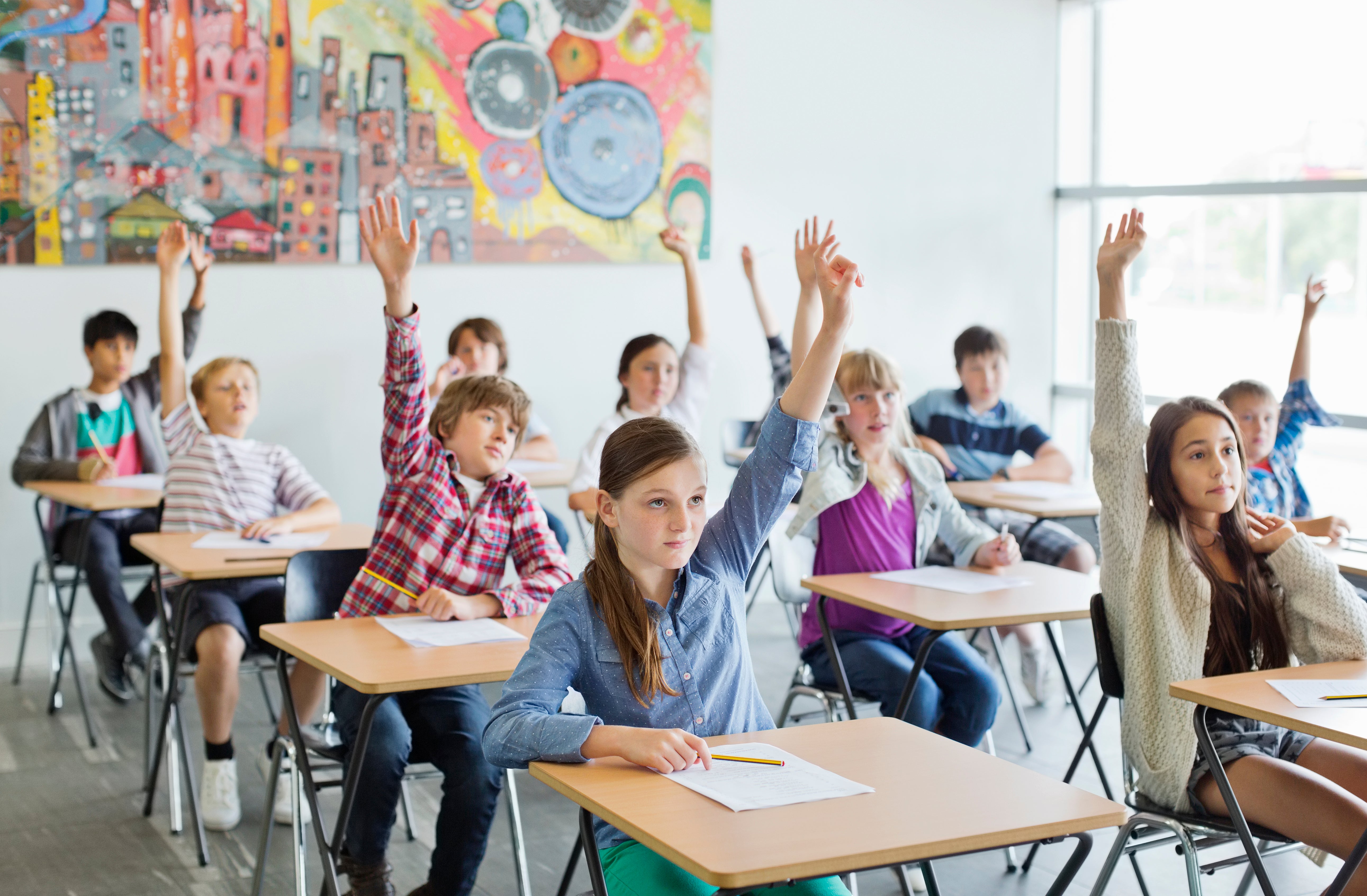How Schools Play a Vital Duty in Shaping Future Leaders and Trendsetters
Colleges are instrumental fit future leaders and pioneers through the growing of vital reasoning, creativity, and cooperation. By incorporating project-based understanding and interdisciplinary studies, universities test students to analyze and manufacture complex details. Teachers work as coaches, directing students and nurturing their possibility, while extracurricular tasks better establish leadership abilities and durability. This dynamic environment not only concentrates on private strengths yet also highlights the importance of synergy, essential for navigating tomorrow's obstacles. Exactly how exactly do these aspects interplay to develop a robust structure for future success?
Promoting Vital Thinking
In today's swiftly advancing world, cultivating critical assuming within universities has actually come to be extremely important. As culture grapples with progressively complicated worldwide difficulties, the ability to analyze, assess, and manufacture details is necessary. Institutions play a vital duty in establishing these abilities, preparing pupils to browse and deal with diverse issues with educated, reasoned choices.
To grow critical thinking, educators employ different instructional approaches that urge energetic understanding and intellectual involvement. Class conversations, problem-based understanding, and Socratic examining are crucial in advertising reflective and analytical mind. By testing pupils to question assumptions and consider several perspectives, these methods make sure a deeper understanding of subject past rote memorization.
In addition, incorporating important thinking throughout the educational program reinforces its importance and applicability in varied contexts. Subjects such as maths, scientific research, history, and literature each deal special possibilities to create students' essential professors. Evaluating historic occasions needs understanding and assessing resources context, while clinical query demands strenuous theory screening and evidence-based reasoning.
Eventually, instilling important thinking abilities in students furnishes them with the cognitive devices required for long-lasting knowing and flexibility. It is through this fundamental competence that future leaders will certainly have the ability to innovate, address problems, and add meaningfully to society.
Encouraging Creative Thinking
Welcoming imagination within instructional structures galvanizes trainees to believe beyond standard boundaries and explore innovative services. By incorporating imaginative undertakings and creativity workouts into the curriculum, institutions grow an atmosphere where creativity and imaginative thought are valued. This technique not just improves the instructional experience however also furnishes students with the capacity to take on real-world obstacles in unique means.
Educational organizations can foster creativity with diverse means such as project-based learning, interdisciplinary researches, and the incorporation of arts and innovation. Project-based knowing, as an example, urges pupils to use their expertise in sensible, frequently collaborative, projects that require innovative problem-solving abilities. Interdisciplinary studies allow trainees to attract links in between various subjects, thereby widening their point of views and boosting their creative abilities.
In addition, giving students with chances to engage with emerging modern technologies, such as coding and digital design, additionally supports their imaginative possibility. These activities motivate pupils to experiment, stop working, and iterate, which are essential components of the imaginative procedure (Save Temecula Schools). By preserving a supportive setting where trial and error is motivated, schools can ensure that students develop the self-confidence to pursue ingenious ideas
Fundamentally, nurturing creativity in instructional setups is crucial for shaping future leaders and innovators qualified of resolving complex international problems with resourcefulness.
Promoting Partnership

Carrying out group-based understanding modules and participating jobs enables students to experience the dynamics of teamwork firsthand. This not only prepares Source them for the collective nature of contemporary offices but likewise nurtures leadership top qualities as they commonly need to handle functions such as task supervisors or team coordinators. you could try this out Furthermore, partnership in the class can damage down social obstacles and promote inclusivity, ensuring that each student really feels valued and listened to.
Moreover, incorporating modern technology can even more sustain collective efforts. Tools like shared electronic work areas and interactive platforms make it possible for pupils to collaborate effectively, even outside the class. As trainees develop these joint abilities, they are better outfitted to deal with complex challenges and introduce, preparing for their future roles as leaders and pioneers.
Role of Educators as Mentors

Mentorship includes customized attention, where educators identify and support private toughness and address weak points. Save Temecula Schools. Via individually communications, educators can customize their suggestions and support to meet each student's special demands, fostering a feeling of confidence and durability. This individualized strategy cultivates a development mindset, motivating trainees to see failures as opportunities for discovering and development
Additionally, instructors act as role designs, demonstrating the worths of determination, integrity, and empathy. Their attitudes and activities provide a blueprint for pupils to imitate, instilling a feeling of moral duty and social awareness. By producing a helpful and inclusive class environment, educators allow trainees to create interpersonal skills that are critical for efficient management.
Fundamentally, the mentorship supplied by educators lays a foundational framework for the development of future leaders, equipping them with the knowledge, skills, and worths required to master an ever-evolving globe.
Influence of Extracurricular Activities
When integrated properly right into the educational framework, after-school activities significantly improve student growth and leadership potential. These tasks supply students with chances to explore rate of interests past the traditional curriculum, fostering a well-rounded capability. Clubs, sports groups, and arts programs cultivate important qualities such as teamwork, time administration, and resilience. Participation in these tasks frequently calls for pupils to handle responsibilities, therefore supporting their leadership capacities.
Furthermore, extracurricular involvement motivates creativity and development. Trainees participated in music, debate, or dramatization clubs find out to believe critically and technique troubles from varied viewpoints. These experiences instill confidence, making it possible for trainees to articulate their concepts and take initiative in various setups. By collaborating with peers from different histories, trainees likewise establish compassion and communication skills, necessary qualities for future leaders.
After-school activities additionally play an essential role in academic performance. Research shows that trainees associated with such programs have a tendency to have higher qualities and better presence documents. These tasks offer a healthy and balanced electrical outlet for tension, adding to overall well-being. Hence, schools that prioritize a well balanced technique to education and learning, integrating durable extracurricular programs, are more probable to generate innovators and leaders geared up to satisfy the challenges of the future.

Verdict
To conclude, institutions considerably shape future leaders and trendsetters by nurturing vital reasoning, creativity, and partnership amongst trainees. Involving instructional strategies such as project-based knowing and interdisciplinary researches play a vital function in this growth. Educators, acting as mentors, supply important guidance and support, while extracurricular tasks better improve management possible and strength. By cultivating a helpful atmosphere that values private strengths and team effort, colleges outfit pupils with the required abilities to browse future obstacles and drive development.
As students establish these joint abilities, they are much better geared up to take on complicated difficulties and introduce, laying the groundwork for their future roles as leaders and pioneers.
By cultivating critical reasoning and analytical abilities, teachers help pupils navigate intricate challenges, preparing them for management functions in various areas.
By collaborating with peers from various backgrounds, trainees likewise develop compassion and communication abilities, essential attributes for future leaders.
In final thought, schools significantly shape future leaders and pioneers by nurturing important reasoning, imagination, and collaboration amongst students. By promoting an encouraging atmosphere that values individual staminas and synergy, institutions outfit students with the necessary abilities to navigate future challenges and drive innovation.